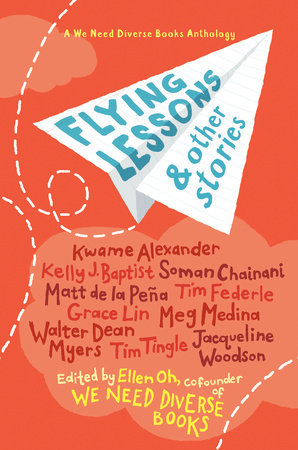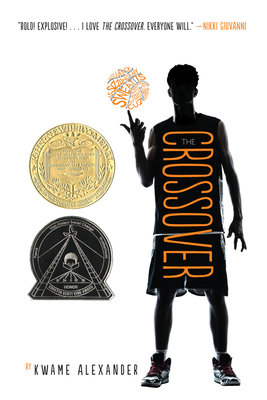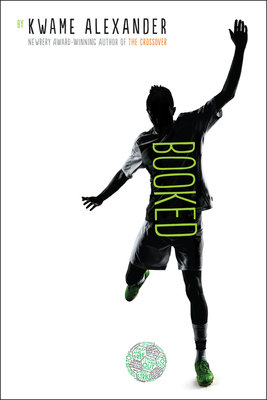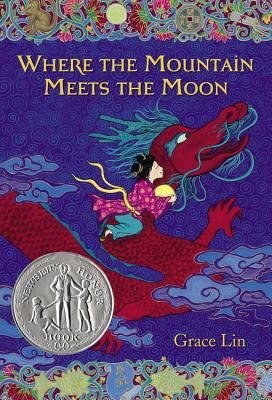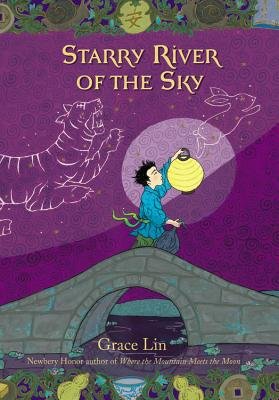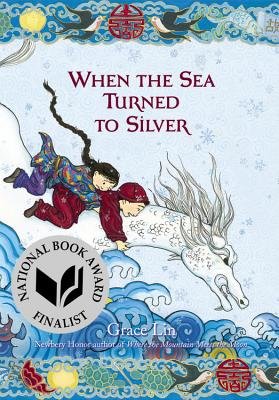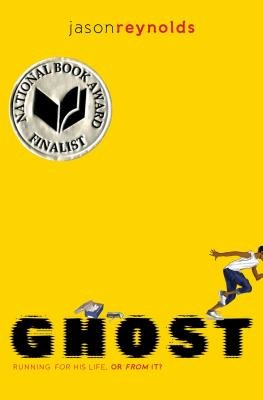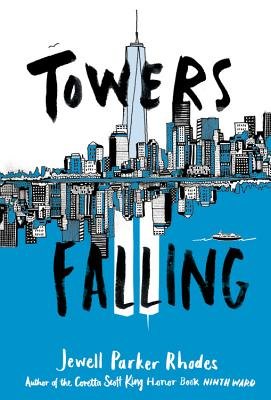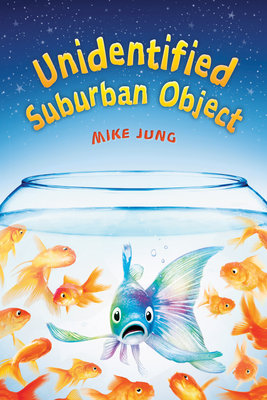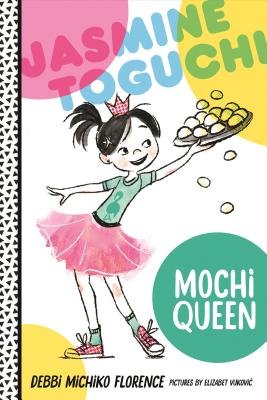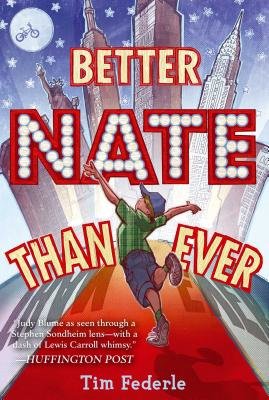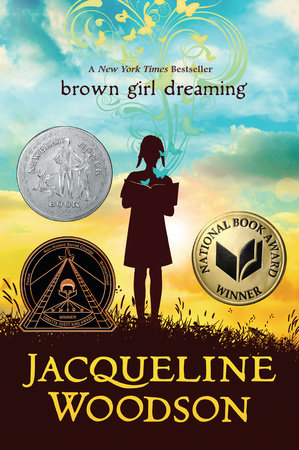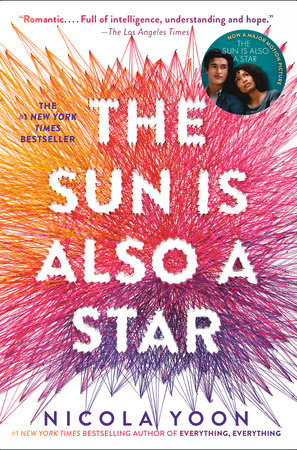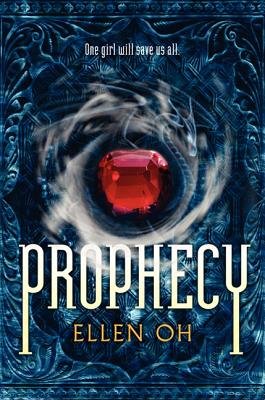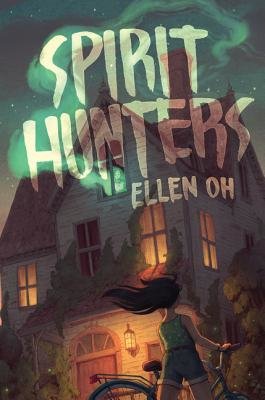On Diversity in Kids’ Lit:
A Chat with Ellen Oh About
Flying Lessons & Other Stories
by Wesley Salazar
Ellen Oh is the author of the Prophecy series, a leader in the We Need Diverse Books movement, and the editor of Flying Lessons & Other Stories, a new anthology for middle grade readers that features short stories from ten diverse writers, including bestselling authors Kwame Alexander, Matt de la Peña, and Jacqueline Woodson. I had the chance to talk to Ellen about how Flying Lessons & Other Stories came to be published, what it means for all kids to see diversity in children’s books, and which diverse middle grade book she thinks should be required reading for all.
You’re the cofounder of We Need Diverse Books. For readers who aren’t as familiar with the organization, can you tell us a little bit about it?
Sure, so WNDB was created in response to the lack of diversity in children’s literature and, if you look at the study by the Cooperative Children’s Books Center of the University of Wisconsin-Madison … in the year 2012, they showed that out of 3,600 children’s books reviewed that year, only 7% were about kids of color. And then you flash forward to 2015, which was [when they published] the last statistics … and the numbers have gone up to about 14% for kids of color. But it’s still not enough. There are more books about inanimate objects than there are books about Native American kids or Latino kids.
Diversity is not only important for the underrepresented, it’s really important for everyone. We all need to be exposed to other races and other cultures in positive ways, not in stereotypical ones, not in problematic ways, which sometimes is a problem with some of the representation that’s out there. Having good representation helps people learn tolerance and acceptance of differences — and I think that when we don’t provide that, we fail in our duty to educate and inspire the minds of our children. And, kind of hand-in-hand with all of this is that I can’t help but wonder if the rise in the racism, Islamophobia, and just flat-out bigotry that we’ve been seeing isn’t somehow related to this very issue of the lack of positive representation in children’s literature. Because empathy starts there — it starts young. I mean, when we hear about second graders bullying a young Muslim American kid, and high school students chanting “Build a wall!” to a rival basketball team of Mexican-American players, who takes responsibility for that? I think it’s all of our responsibilities and that’s why diversity is so important — and, now more than ever, it’s something that has to be addressed.
Can you talk a little about how WNDB was formed?
Diversity is not a new issue at all. I mean, there have been so many great activists who really have tried hard to promote diversity movements over the years. I think the difference for WNDB is that it was just a matter of the right timing, the right set of circumstances, and then just social media — the difference that Twitter and Tumblr and Facebook gave our movement, which was never available previously … It was the beginning of 2014: You had Walter Dean Myers writing this op-ed piece, “Where Are the People of Color in Children’s Books?,” and his son Christopher Myers writing another piece “The Apartheid of Children’s Literature” [on the same day].
Book Con then announces their “Blockbuster Reads” panel for children’s literature, which was a panel of all white men. At the time there was a huge outcry, especially from women writers, rightfully so, because there are more women writers in children’s literature than men — and yet where were they? Why weren’t they represented? But at the same time, writers of color were like, “Hey, welcome to our world.” So when the Book Con one-day event was then announced, they announced 30 guests … and there was not one single representation of writers of color.
This really made the issue stand out strongly for people who may not have been as aware of it before, and it was kind of like a wake-up call for everyone. And we were able to capitalize on that by starting a social media campaign based on the hashtag #WeNeedDiverseBooks, and just asking people to tell us visually what it really meant not to have seen themselves represented in the books that they read growing up. It was just amazing to see the responses there, from parents sharing stories of how important it was for their kids to see themselves represented — so that little black boys know that they can be superheroes too — to getting so many heartbreaking stories from the LGBTQ community saying how they might not have tried to kill themselves if they had just seen better representation. This was emotionally, deeply moving to a lot of people and I think that it really took off from there.
And so what we realized was that, here is this great hashtag movement but … awareness is only part of the issue. You actually have to make the change that you’re asking for, and so we put together a proposal. We wanted to raise money and provide incentives for the community — internships to get college kids of color into publishing; providing grants and mentorships to writers of color; bringing books by diverse authors into classrooms. We gave thousands of books away! We had visits by authors of color to schools all over the country. These were the things that we believed would make a difference. So we became a nonprofit, we started to fundraise, and here we are — two years later — sitting on quite a lot of successes, and our first anthology.
It seems like that was a natural next step — to put this anthology together. How did you go about creating this publishing partnership with Crown?
Basically, Phoebe Yeh was my editor at Harper for my first book, Prophecy, and Soman Chainani is a really good friend of mine who wrote The School for Good and Evil, and Phoebe was also his editor. So we had met kind of like that and we had these ongoing breakfast, lunch, dinner meet-ups that we’d do with Phoebe … Going back at the very beginning of 2014, before WNDB ever came about, Soman and I were at an event and talking about being kids of immigrant parents in this country, just trading hysterically funny stories. And he was telling me this story about his grandmother … and we were just howling with laughter and I was like, “You know, this would make such a great book of stories.” And that idea just stayed with me the whole year, then WNDB happened, and all these things happened, and by the end of that year we’re having our semi-annual meet-up with Phoebe, and I just turned to Soman and I go, “Soman, remember that story you told me? Well if WNDB does an anthology, will you write the story for me?” Soman says, “Of course!” and Phoebe says, “And you’ll sell it to me!” And that’s how it happened. [Laughs.]
The perfect storm.
Yeah, exactly.
And now we know how the book got its title…
Flying Lessons. You know, it’s just kind of perfect that the idea came about because of Soman, [and] his story becomes the title of the anthology.
Other than Soman, how did you select the authors and stories that were featured in the book?
They’re all people who are either on our advisory board or are huge supporters of WNDB. It was literally one of the easiest asks that I’ve ever done in my life. It was just like, “Hey, we’re gonna do an anthology! Would you like to…” and they were like, “Yes! Whatever you need!” That’s how much they believe in the cause. That’s how much they feel strongly about what we’re doing. And these are people whose schedules are, like, scary. Trying to get on their schedules is kind of a feat of impossibility, usually. But they were willing to make the time commitment, because they truly believe in WNDB’s mission, I think, that we are making that change happen.
Yeah, it’s really quite an all-star cast in children’s lit.
Yes. [Laughs.]
Diving into the book itself, one of the recurring themes that I noticed throughout is that of diverse kids finding sources of strength during particularly difficult — sometimes even tragic — times in their lives. Was that theme something you specifically wanted to convey with this anthology? Was there anything else you hoped to convey to young readers?
So, I love that theme. It is just such a perfect one, especially right now. It’s so important, as we kind of head into what looks like potentially a very difficult time for kids in marginalized communities. But, no, I can’t even take any credit for that. There was no specific goal whatsoever — the goal was simply to ask all the authors to write a story that in some way embodied the principles that Walter Dean Myers represented, more specifically in his platform as Children’s Book Ambassador, where he said, “Reading is not optional.” But other than that they were really just given the freedom to write what they wanted to write, and I think that the fact that this unifying theme came out is truly indicative of the experiences of a lot of people who are from marginalized communities.
Yeah, it’s interesting. They do cover quite a wide scope of emotions, obviously sadness is one of them, but there were some [stories] that were hilarious.
Oh my god, yeah. My youngest kid, who is the hugest Kwame [Alexander] fan, when his poem came, she grabbed it out of my hands and she was reading it, and I could hear her laughing out loud. It was just the best feeling.
It sounds like Kwame Alexander really resonated with her — and I’m sure you love all the stories, but is there one that really stands out as a story that resonates with you or your experience?
Honestly, I don’t think I can really pick, because it would be like trying to pick which one of my kids is most like me or my favorite. Each story pulled such a different reaction from me and touched me in a different way.
To be honest, my foreword is actually my real experience, what I wrote in the foreword. Being that kid that does the dumb things. You know? [Laughs.] But otherwise, I would say that no, I couldn’t pick a favorite. But I love hearing from people who tell me about their favorites, which has been really interesting, because it’s all different.
Do you have any anecdotes in mind of people telling you about the stories they loved?
You know, I think that kind of goes to what you’re talking about in terms of like, what are the stories that move them? I had someone tell me that Jacqueline Woodson’s story made her emotionally regress to her childhood, because that was her. She felt the pain of being that kid who was the only black kid in a very white town, and [she said] that she cried so hard reading that story, which I understand ‘cause I cried … really every time I read that story, I cry, so I can imagine how much more that emotionally resonates for you when it’s your experience.
And I had another person tell me that they just loved Grace Lin’s pirate story, because they always wanted to be a girl pirate! [Laughs.] So I think the responses have been different. People have told me that they were surprised to find themselves in love with Matt de la Peña’s basketball story, because they said that it was so unexpected — when they got to the end of that story, it was so unexpected that they would be as in love with it as they ended up [being], and I thought that was just beautiful to hear.
So for kids who pick up this book and love it, and wanna read some more diverse books, is there anything they should go out and get and read right now?
Well, you know, the first step would be, of course, to pick up any of the books published by any of the authors in the anthology already. A kid who wants to read fairytale books should definitely pick up Soman Chainani’s The School of Good and Evil series. If they’re looking for more Kwame verse stories, come on: The Crossover. And Booked is out, which is amazing. I’d say read all of Grace Lin’s books, every single one of them, but especially the three that start with Where the Mountain Meets the Moon and end with When the Sea Turned to Silver.
Ghost by Jason Reynolds — I love that book. Towers Falling by Jewell Parker Rhodes, simply because I never thought I’d be okay reading a 9/11 book, but, god, that was such a beautiful book. And for a really funny, touching, fish out of water kind of story, Unidentified Suburban Object by Mike Jung is just fabulous. There’s a few coming out that I’d love to give a shout-out to: Jake the Fake Keeps it Real — that one is hysterical — and there’s one that I haven’t read, which I’m dying to get my hands on, which is Jasmine Toguchi, Mochi Queen by Debbi Michiko Florence.
I think there’s so many fantastic choices in middle grade — oh, and I’m sticking strictly to middle grade, because we’d be talking for an hour if I started talking about YA also.
That’s a lot of options and, as you said, this book can facilitate getting to know the authors — if you like a short story in the book, you can go out and read books by any of the authors.
Exactly — any of them. I mean, [there’s] Tim Federle’s Better Nate Than Ever. And I have to say that I feel like Jacqueline Woodson’s Brown Girl Dreaming should be required reading for everybody. Just in my personal opinion. ‘Cause I absolutely adore that book. I think it’s one of the most beautiful books ever written. I love it so much, and it’s about a very important period of time.
So, what is next for We Need Diverse Books? Is there anything that readers should be on the lookout for?
Oh, absolutely. We have our next anthology, which is gonna come out in 2018, which is called Lift Off. It’s our YA anthology. It’s going to be edited by Lamar Giles, who is a WNDB executive and one of my best, best buddies, and it’s packed with amazing YA authors like Melissa de la Cruz; Daniel José Older; Gene Luen Yang has a story that’s illustrated by Thien Pham; Malinda Lo’s in it; Jason Reynolds; Sharon Flake; Nicola Yoon, who wrote my most favorite book in the world right now, The Sun Is Also a Star; Sara Farizan; Eric Gansworth; and Schuyler Bailar, who I don’t know if you know who he is but he’s the first transgender male Harvard swim-team member; and of course we have a story by the late Walter Dean Myers.
So it’s gonna be epic.
This interview has been edited for length and clarity.
-
Books Mentioned in This Article:
-
Flying Lessons & Other Stories
Also available from:The Crossover
Preorder from: -
-
Towers Falling
Preorder from: -
Brown Girl Dreaming
Also available from:The Sun Is Also a Star
Also available from:
-
Books by Ellen Oh:
-
Prophecy series
Preorder from:Spirit Hunters
Preorder from:
Ellen Oh is cofounder and president of We Need Diverse Books (WNDB) and author of the YA fantasy trilogy the Prophecy series and the middle-grade novel The Spirit Hunters, to be published in fall 2017. She was named one of Publishers Weekly’s Notable People of 2014. Ellen met Walter Dean Myers and his son Christopher Myers at one of her first book festivals. Already nervous, her mouth dropped open when she saw the pair towering over the crowd. Chris took pity on an awestruck Ellen and introduced himself, and he and Walter couldn’t have been nicer, taking her under their wing and treating her like an old friend. Oh resides in Bethesda, Maryland, with her husband and three children. Discover more at ellenoh.com.

